How to Use Your Author Website for Book Marketing

This is a guest post by Erika Rykun. Erika Rykun is a book nerd and editor at Booklyst. When she's not busy reading books, she writes about them.
Are you looking at your author website right now?
Do you see it as an indispensable tool in your book marketing strategy?
If not, this article will help you look at it differently.
An author website is a powerful locomotive that can carry its owner to successful selling and help one find a well-deserved readership.
Whether you market your first book or backlist books, the guidelines below will help you use your author site for effective book promotion.
Dive in.
Ultimate Guide to Book Marketing via Your Author Website
Consider the following tips on how to use your author website for book marketing:
1. Let your homepage promote your books
What if we told you that a homepage is the central part of a writer's website?
According to Jin & Co, author website design specialists, a homepage is the most popular type of page (41%), followed by the Books page (28%), Blog post (19%), and About the Author page (12%).
That’s why to boost sales, your book (not you!) should meet your audience on your e-doorstep.
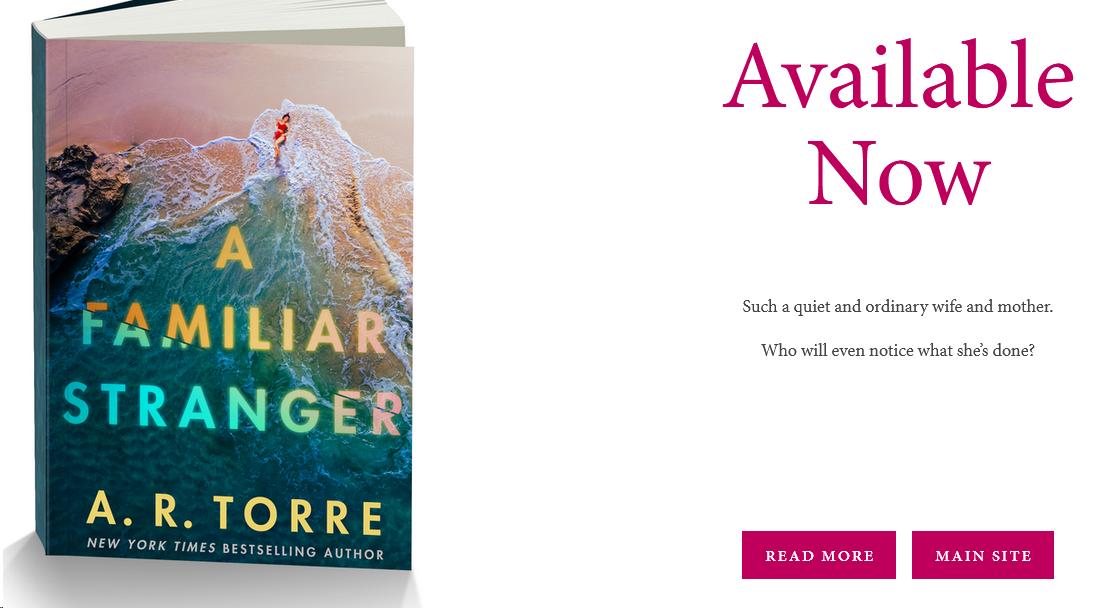
2. Write compelling book descriptions
Since the Books page goes second in popularity among site visitors, you may need to give it due importance.
Listing your works, you should write book descriptions that sell.
- 2-paragraph description
A couple of sentences or short paragraphs (150–200 words) will be enough to kindle the reader’s interest.
- Extended description
Go beyond 200 words and provide more details. You should give your potential buyers rich and substantial content.
Shorter is not always better if you peer into the book description writing hacks. For example, offer to click on Open full summary or Learn more. Adding both descriptions (a brief and an extended one), you kill two birds with one stone.
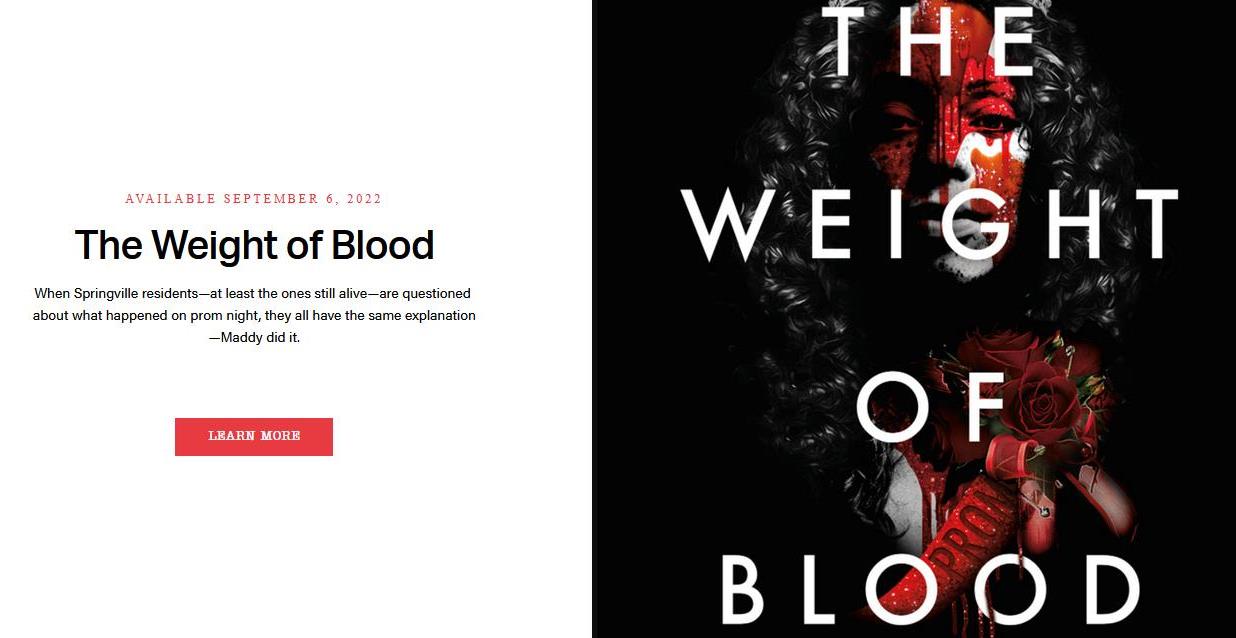
Besides, after the description, you can lure your visitors into reading the first chapters for free to get them interested in buying the whole book.
Just like J.T. Ellison does by offering the first three chapters in PDF.
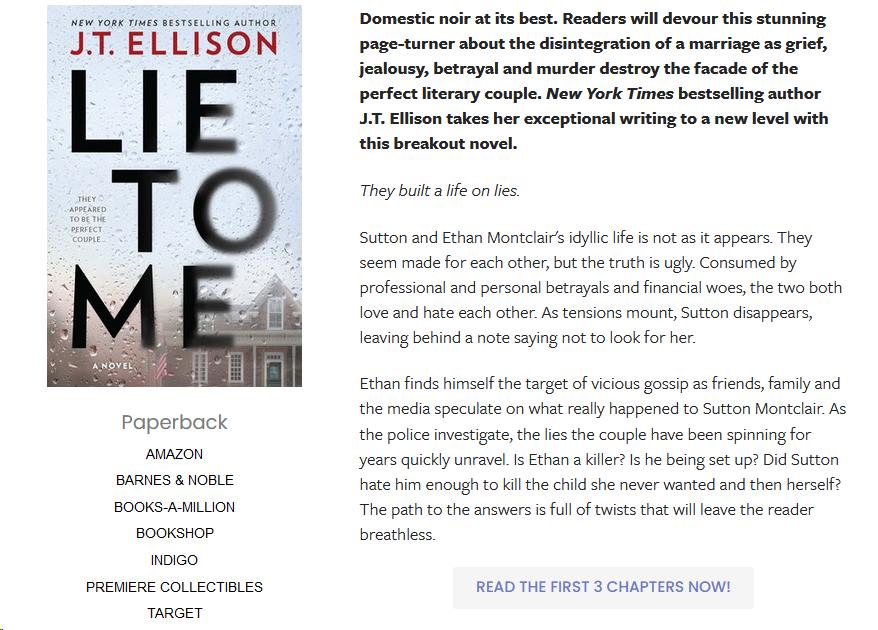
3. Mention book titles in your bio
Crafting the About the Author page, you can copy-paste your author bio from the end of your book.
If the bio from your book lacks some of your titles and awards, add those to your About the Author page and highlight them in bold or italics to make them more vivid and easily recognizable.
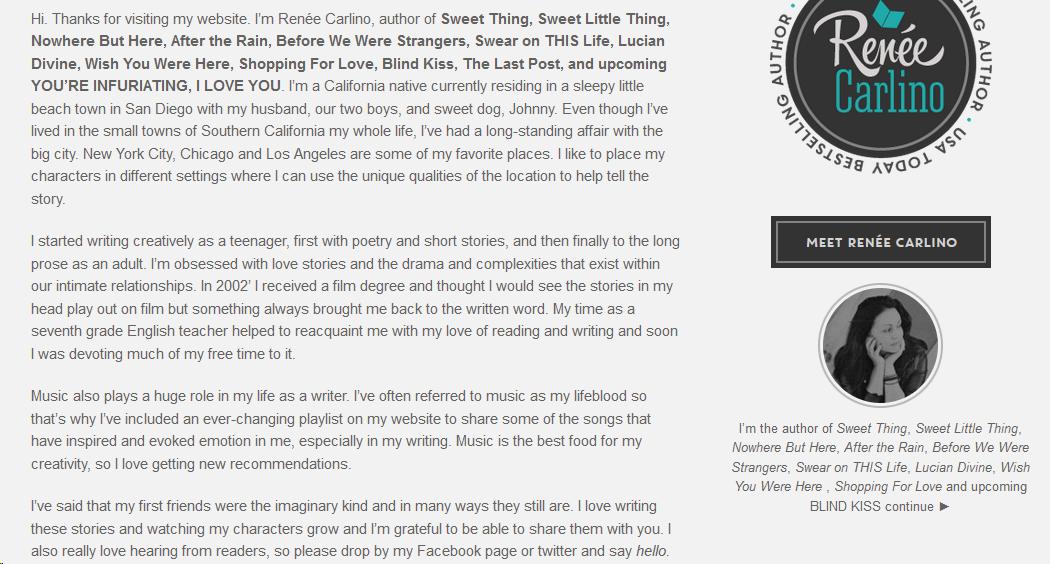
4. Link your website to your social media accounts
According to ResearchGate, social networks influence shoppers’ decision-making process in terms of purchasing books by driving the feeling of engagement and emotional value. That's why, apart from promoting your author brand, social media helps you market your books too.
In the digitally social age of today, if you’re not going social, your website is a dead end. You should strive for a “circulation” of your audience between your social media accounts and your personal site.
To achieve that, add a link to your author page to your social media profile and invite your audience to it regularly. And vice versa: your author website should contain links to your social media channels. Make them accessible right from your Homepage.
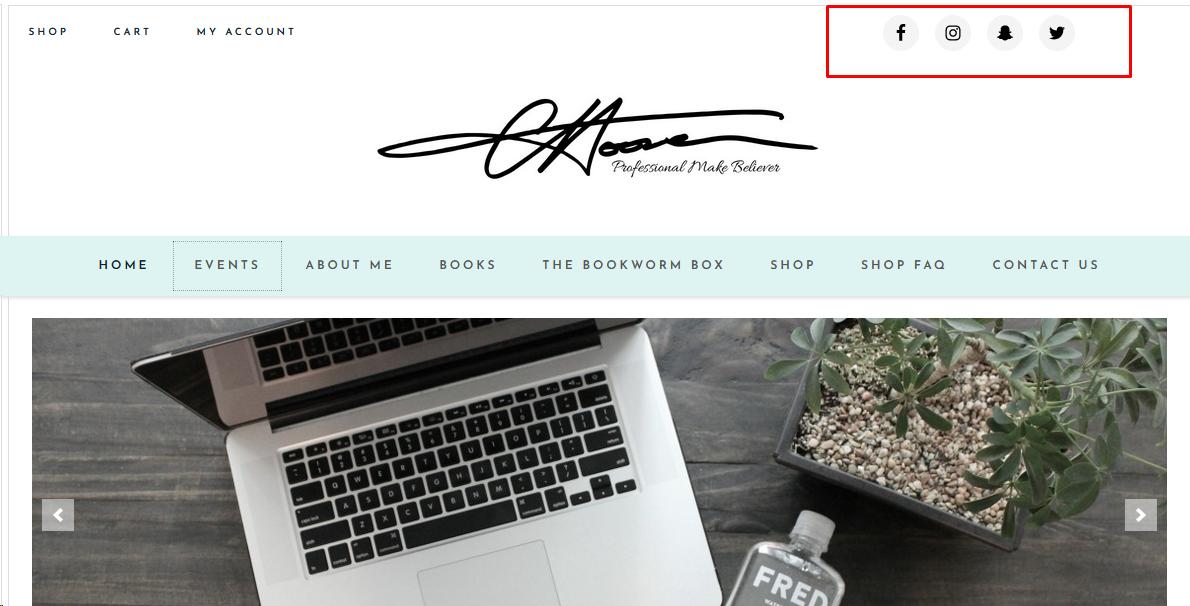
Besides, remember to duplicate them on your Contact page.
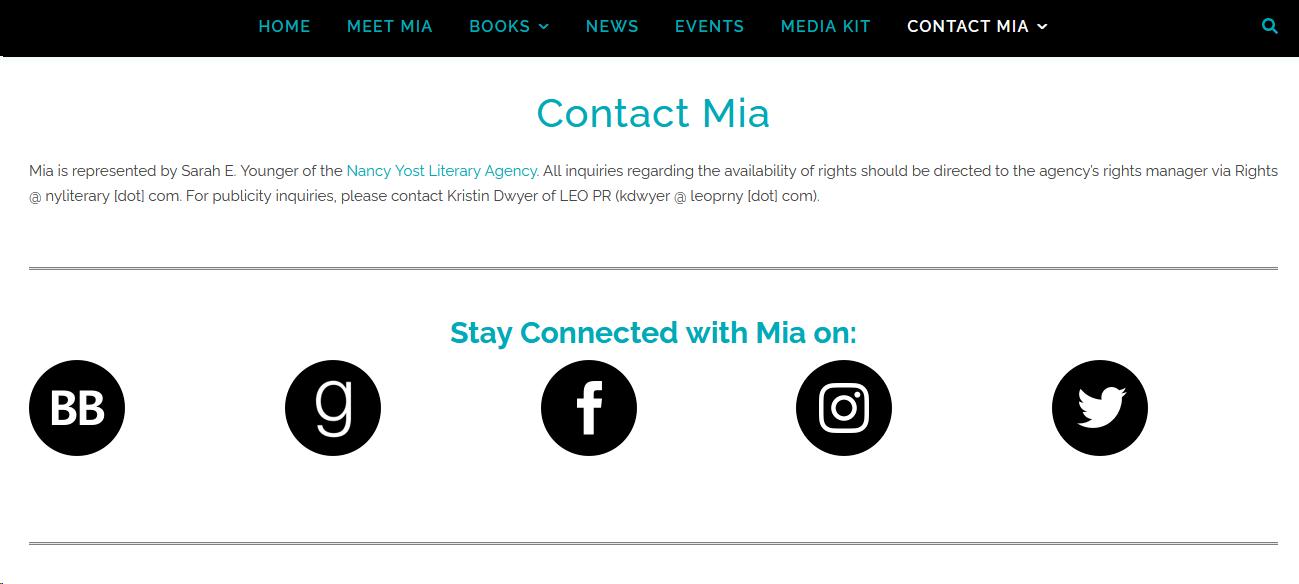
5. Add Events page
Your Events page shows that you’re alive and participating in social activities.

Here’s a list of some events and creative campaigns for your book promotion you can include on the Events page:
- Hosted readings on YouTube
- Festivals
- Writing contests
- Podcasts
- Book giveaways and social media contests, etc.
As for the latter, such promotions are great tools for word-of-mouth marketing, as roughly 95% of contest participants share the event immediately upon registration. Giveaways, in their turn, also create much buzz and draw new readers to your site.
6. Collect emails
Get subscribers and sell more books by setting up a mailing list.
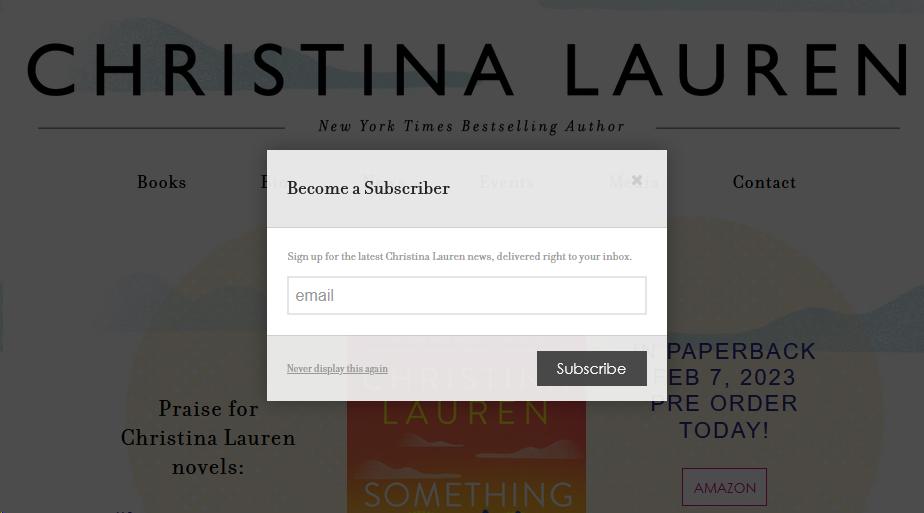
To collect more emails and grow your book sales via your author site, apply the following tricks:
- Use email popups
- Give coupons and discounts to new subscribers
- Create book-dedicated quizzes
- Host free events
- Use call-to-action (CTA) buttons
- Take advantage of freebies and incentives
Here’s how Glynnis Campbell uses a lead magnet to capture emails:
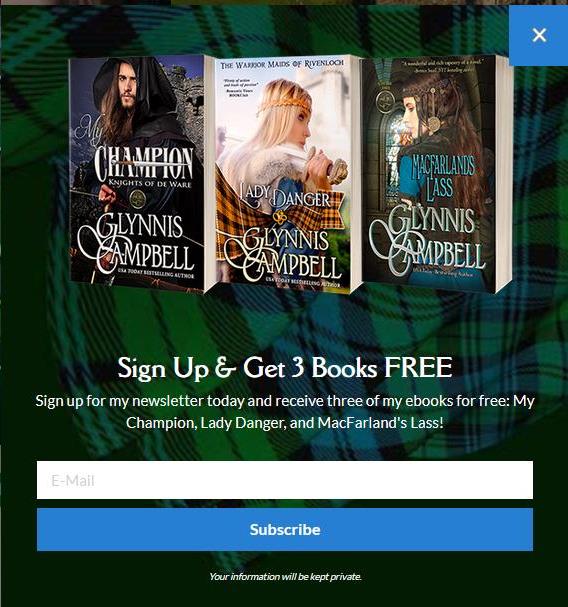
Grab these CTA examples for a newsletter subscription:
Yes, sign me up!
Join the club
Join the community
Subscribe now
And for freebies and discounts:
Grab your freebie
Give me the coupon
7. Start blogging
Did you know that websites with a blog have 55% more site visitors?
Blogging gives you a chance to attract new readers, engage with your audience via comments, or even test storylines, fishing out the reactions of your blog readers.
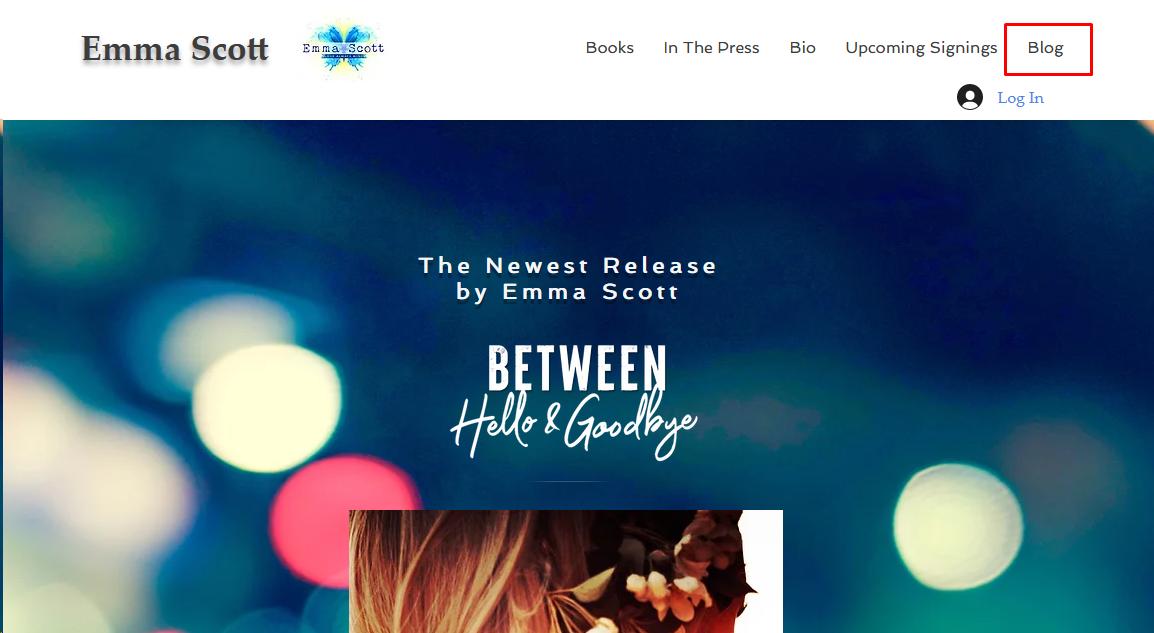
Using Your Author Website to Market Books: Summing Up
One thing is self-publishing a book, and quite another is marketing it successfully.
No worries; with an author website and the above tactics, you can now harness the power of your author site to advertise your books, grow your reader base, and drive more sales.
So, what are you waiting for?